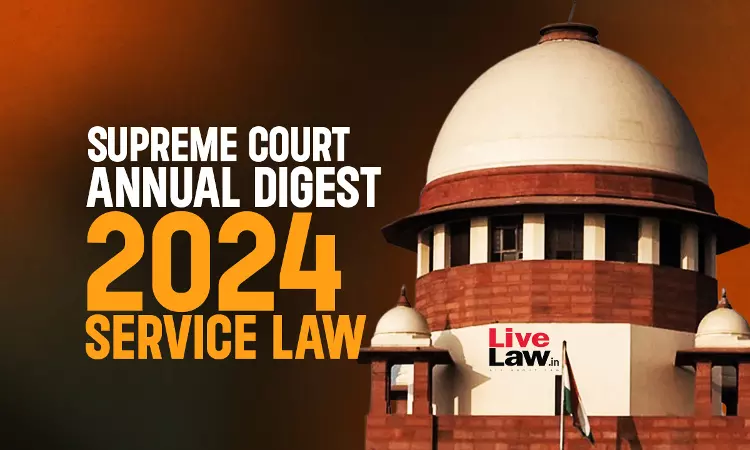- Home
- /
- Supreme court
- /
- Supreme Court Annual Digest 2024:...
Supreme Court Annual Digest 2024: Service Law
LIVELAW NEWS NETWORK
1 Feb 2025 5:51 PM IST
SERVICE LAWS - SUPREME COURT ANNUAL DIGEST 2024AdministrationConstitution of India - Article 16(1), 16(4) and 335 - Efficiency of Administration - Article 335 does not limit sub-classification; rather, it reinforces the importance of inclusion and equality in public services in line with Article 16(1). State of Punjab v. Davinder Singh, 2024 LiveLaw (SC) 538In public law proceedings, when it...
Next Story



